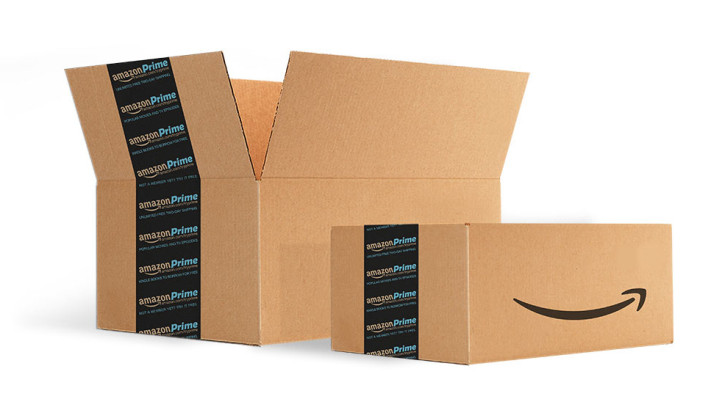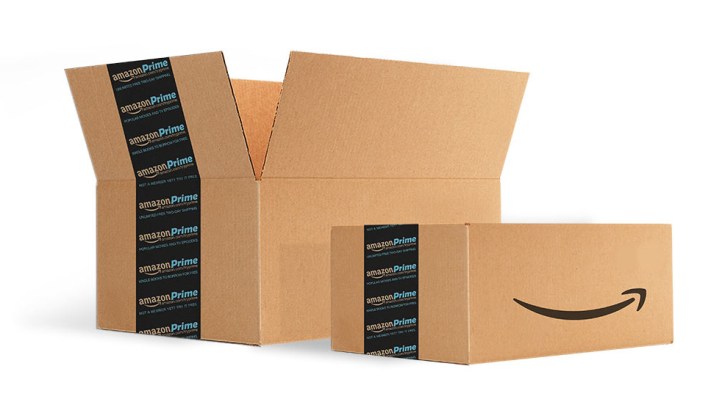

E-commerce is one of the economy’s bright spots; U.S. e-commerce sales have nearly doubled in five years, and now exceed $500 billion. Unsurprisingly, Amazon has swooped in to claim a disproportionate share of the riches, gobbling up nearly 50 percent of the market share, driving competitors out of business and solidifying its position as one of the world’s most valuable companies.
As part of its complete transformation of the e-commerce landscape, Amazon has made two-day shipping the new industry standard — a standard which most would-be competitors can’t meet on their own without either investing millions in infrastructure or partnering with their greatest competitive threat. Fortunately for merchants, some exciting new logistics startups are emerging to help them compete with Amazon.
Amazon’s chokehold
In classic coopetition form, Amazon now enables more than a million merchants to sell through Amazon Marketplace. It offers these merchants two-day shipping via a cheap flat fee per package — a fee so cheap, in fact, that no shipping provider can come close to matching it. Amazon is doubling down on its advanced fulfillment network by investing $700 million in Rivian, an electric truck company; augmenting its fleet of 50+ delivery planes; and rolling out 20,000 Mercedes-Benz delivery vans.
Two-day delivery is so compelling, often doubling sales, that many merchants are becoming increasingly dependent on Amazon despite the obvious risks of partnering with the juggernaut. This in itself is spurring startups that help merchants thrive on Amazon. Amazon forces those merchants who work with them to compete side-by-side with other brands, including the company’s own private-label collection that it promotes aggressively. Amazon also pressures merchants to provide their lowest prices on Amazon — despite the fact that Amazon takes a significant revenue percentage. Even then, Amazon still might suddenly kick merchants off its platform without prior notice.
Once merchants sell on Amazon, they often find it impossible to diversify to other platforms with higher margins and more control because they become reliant on Amazon’s unbeatable two-day delivery price. This pressure is making merchants increasingly nervous as Amazon squeezes them from all sides. Merchants are desperately seeking solutions to help them get out of Amazon’s chokehold. A new batch of startups is seizing the opportunity to provide just that.
Aggregated delivery routes
Transportation accounts for more than 75 percent of delivery costs. Merchants can save millions by pooling together their shipping, trucking and last-mile delivery costs. Traditionally, this pooling was done by expensive freight brokers on pen and paper. Today, companies like Flexport, which just raised $1 billion, and Convoy, which was just valued at more than $1 billion, can more effectively match shippers and carriers to combine packages and lower costs.
Addicted to convenience, consumers keep demanding that their merchandise arrive ever more quickly.
Last-mile delivery companies like ShipBob, which recently closed a $40 million investment round, are also beginning to offer Amazon-like two-day shipping solutions. Deliv* takes an even more aggressive approach by offering same-day shipping for retailers via its couriers. By combining volume, these startups allow merchants to save more than 20 percent by negotiating for larger bulk discounts with carriers and by optimizing routes.
Distributed warehousing
To deliver within two days, merchants must have access to warehouses located near their customers. While companies like Walmart and Amazon might be able to invest billions in multiple distribution centers located throughout the U.S., smaller merchants and distributors can rely on startups like Flexe and Darkstore to provide on-demand storage in pooled warehouses across the country. Rather than keeping everything in a central warehouse thousands of miles away, merchants can use artificial intelligence to predict consumer demand and ship inventory to nearby distribution centers. These startups will become increasingly important as retailers seek to go beyond two-day shipping and offer one-day and even same-day shipping.
Robotics and automation
Despite the heavy upfront costs, robotics offer a cheaper long-term alternative to manual labor in many distribution centers. RightHand Robotics, which just landed $23 million, uses a robotic arm to help pick and place items at warehouses. Each arm can operate at the same speed as an experienced packer, while working around the clock. Other startups use automation to reduce last-mile delivery costs through a variety of methods, ranging from self-driving cars to delivery drones. Starship Technologies, for instance, is building a fleet of small self-driving robots to deliver locally. Although individual merchants may not purchase robotic arms, they can leverage logistics startups to reduce costs and improve efficiencies via these new automation techniques.
Addicted to convenience, consumers keep demanding that their merchandise arrive ever more quickly. Amazon is king of convenience and is constantly pushing the bar higher — or faster in this case. Merchants are struggling to keep up. Fortunately for them, a new generation of logistics startups are helping them compete. By creating solutions for the logistics infrastructure of the future, these startups are helping merchants stay in the race against Amazon.
* Denotes Trinity portfolio company

